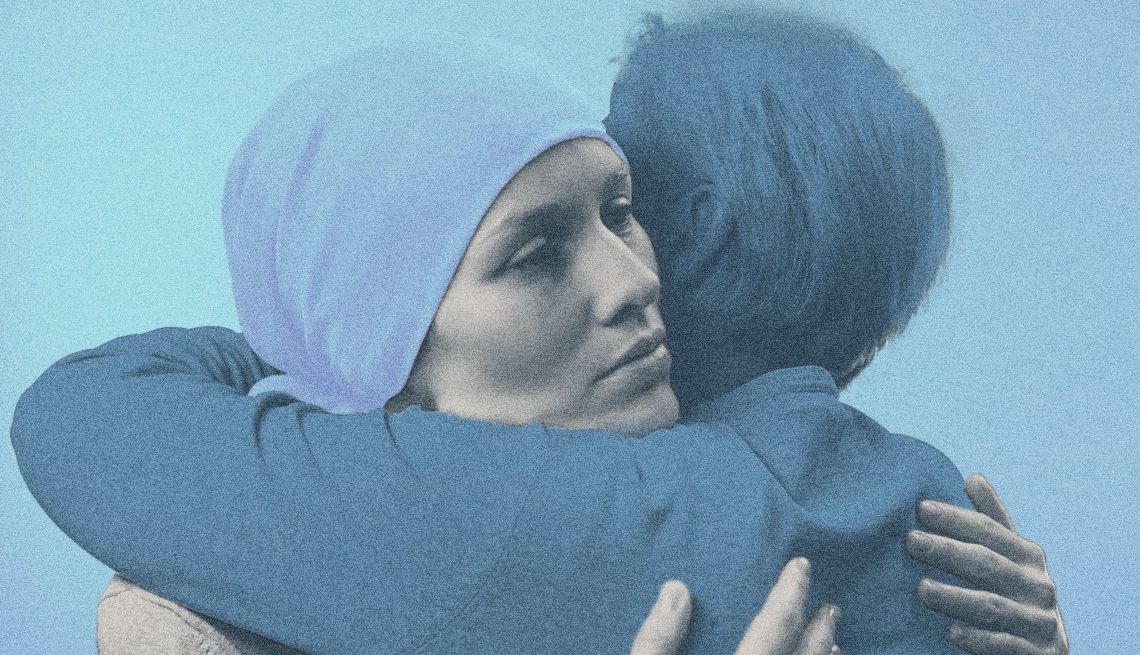
How to support your adult child with cancer
- Select a language for the TTS:
- UK English Female
- UK English Male
- US English Female
- US English Male
- Australian Female
- Australian Male
- Language selected: (auto detect) - EN
Play all audios:

DO KNOW YOUR ROLE Parents might want to jump in and be an active “protector,” Land-Davis says, but that isn’t always what their adult child needs. “As a protector, you want to talk to the
doctor, you want to talk to the nurse, you want to talk to the navigators, but that’s not your role, especially if you haven’t been given permission by your adult child to take on that
role,” Land-Davis says. Shen says checking in with your child is a great way to figure out the role your child wants you to fill. This communication is “so important” because an adult
cancer patient’s needs “can be wildly different from one child to the next.” Losada-Bekou also says you also should be mindful of other support people your child has in their lives.
“Depending on their stage of life, they may have a partner, siblings, friends, their own kids who might be supportive of them as well,” Losada-Bekou says. “So that means that you might play,
as a parent, a larger role or a smaller role. And that’s OK.” DON’T SHARE INFORMATION ABOUT YOUR CHILD’S CANCER BEFORE ASKING IF IT’S OK As your adult child deals with cancer, it is up to
them how much they want other people to know about their journey. So Land-Davis cautions parents against sharing private information . Land-Davis says she counseled a family where an adult
child opted not to share her diagnosis with family, but the mother shared it with another family member. Land-Davis says she understood the mother’s need for support as she watched her
daughter go through treatment and lose her hair. But Land-Davis says a resource outside of the family, such as a licensed therapist, would have been a better option for support. DON’T GIVE
UNSOLICITED ADVICE Giving advice to children often comes naturally as a parent. But make sure to ask for permission to share your opinions, Losada-Bekou says. “Try to avoid being intrusive,”
she says. “Your opinions are not always going to be requested. So try to avoid just giving unsolicited advice, if you can, unless it’s asked for or you asked, ‘Do you mind if I share with
you some things that I might do or I might suggest?’” DO BE DIRECT Being direct is the best way to learn how to help your son or daughter in exactly the ways they want. If you’re up front in
asking, you’ll be able to offer support as needed and avoid becoming overbearing. “Asking directly, ‘How can I support you?,’ ‘How can I be there for you?,’ I think is a really powerful
question,” Losada-Bekou says. “And this can be not only emotional support, but, when someone is going through a cancer diagnosis, they may really benefit from help with things like
transportation, child care, making meals, helping them coordinate certain things like appointments or medications, and things like that.” Part of being direct also means you should not shy
away from difficult conversations your son or daughter wants to have — even if they bring about challenging feelings. Losada-Bekou says some parents will try to avoid these hard talks in an
effort to protect their child, but it’s critical to be open to them and engage without judgment. “Sometimes those topics can be really tough, like death or dying. And that, of course, is
never comfortable for a parent,” Losada-Bekou says. “But placing yourself in your child’s shoes and imagining how difficult it must be to even have that discussion, I think, puts you in a
place where you might be more open to that conversation.” DON’T INVALIDATE YOUR CHILD’S FEELINGS No matter how old your child is, it’s very natural to want to nurture, according to
Losada-Bekou. “Unfortunately, when that effort is made to try to fix things … we can inadvertently make them feel more helpless, you know, almost childish in a way,” Losada-Bekou says.
